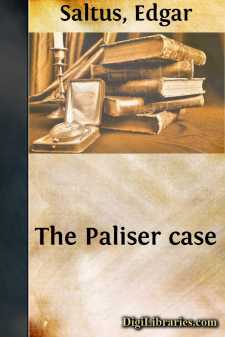Categories
- Antiques & Collectibles 13
- Architecture 36
- Art 48
- Bibles 22
- Biography & Autobiography 813
- Body, Mind & Spirit 142
- Business & Economics 28
- Children's Books 16
- Children's Fiction 13
- Computers 4
- Cooking 94
- Crafts & Hobbies 4
- Drama 346
- Education 46
- Family & Relationships 57
- Fiction 11829
- Games 19
- Gardening 17
- Health & Fitness 34
- History 1377
- House & Home 1
- Humor 147
- Juvenile Fiction 1873
- Juvenile Nonfiction 202
- Language Arts & Disciplines 88
- Law 16
- Literary Collections 686
- Literary Criticism 179
- Mathematics 13
- Medical 41
- Music 40
- Nature 179
- Non-Classifiable 1768
- Performing Arts 7
- Periodicals 1453
- Philosophy 64
- Photography 2
- Poetry 896
- Political Science 203
- Psychology 42
- Reference 154
- Religion 513
- Science 126
- Self-Help 84
- Social Science 81
- Sports & Recreation 34
- Study Aids 3
- Technology & Engineering 59
- Transportation 23
- Travel 463
- True Crime 29
Oscar Wilde An Idler's Impression
by: Edgar Saltus
Description:
Excerpt
OSCAR WILDE
ears ago, in a Paris club, one man said to another: "Well, what's up?" The other shook a paper: "There is only one genius in England and they have put him in jail."
One may wonder though whether it were their doing, or even Wilde's, that put him there. One may wonder whether it were not the high fates who so gratified him in order that, from his purgatory, he might rise to a life more evolved. But that view is perhaps obvious. Wilde himself, who was the least mystic of men, accepted it. In the "De Profundis," after weighing his disasters, he said: "Of these things I am not yet worthy."
The genuflexion has been called a pose. It may have been. Even so, it is perhaps better to kneel, though it be in the gallery, than to stoop at nothing, and Wilde, who had stood very high, bent very low. He saw that there is one thing greater than greatness and that is humility.
Yet though he saw it, it is presumable that he forgot it. It is presumable that the grace which was his in prison departed in Paris. On the other hand it may not have. There are no human scales for any soul.
It was at Delmonico's, shortly after he told our local Customs that he had nothing to declare but genius, that I first met him. He was dressed like a mountebank. Without, at the entrance, a crowd had collected. In the restaurant people stood up and stared. Wilde was beautifully unmoved. He was talking, at first about nothing whatever, which is always an interesting topic, then about "Vera," a play of his for which a local manager had offered him an advance, five thousand dollars I think, "mere starvation wages," as he put it, and he went on to say that the manager wanted him to make certain changes in it. He paused and added: "But who am I to tamper with a masterpiece?"—a jest which afterward he was too generous to hoard.
Later, in London, I saw him again. In appearance and mode of life he had become entirely conventional. The long hair, the knee-breeches, the lilies, the velvet, all the mountebank trappings had gone. He was married, he was a father, and in his house in Tite street he seemed a bit bourgeois. Of that he may have been conscious. I remember one of his children running and calling at him: "My good papa!" and I remember Wilde patting the boy and saying: "Don't call me that, it sounds so respectable."
In Tite street I had the privilege of meeting Mrs. Oscar, who asked me to write something in an album. I have always hated albumenous poetry and, as I turned the pages in search of possible inspiration, I happened on this: From a poet to a poem. Robert Browning.
Poets exaggerate and why should they not? They have been found, too, with their hands in other people's paragraphs. Wilde helped himself to that line which he put in a sonnet to this lady, who had blue eyes, fair hair, chapped lips, and a look of constant bewilderment.
As for that, Oscar was sufficiently bewildering. He talked infinitely better than he wrote, and on no topic, no matter what, could he talk as other mortals must....











